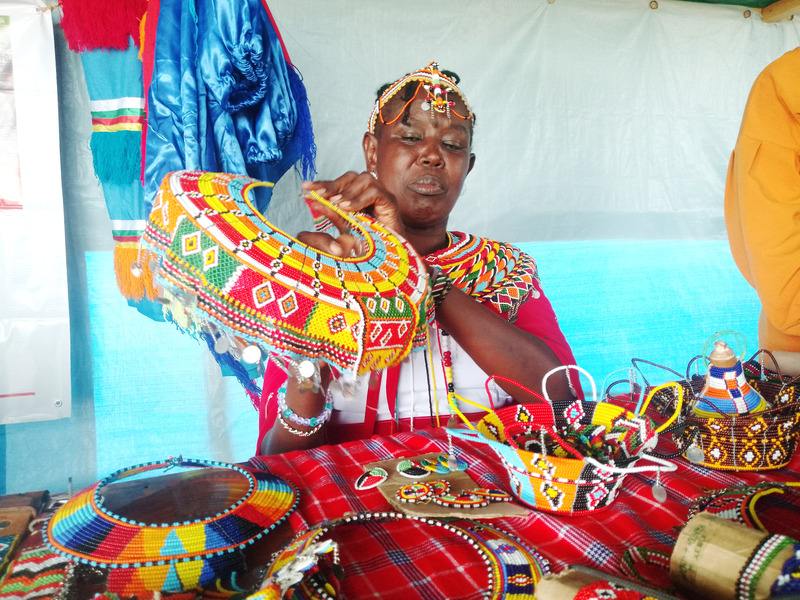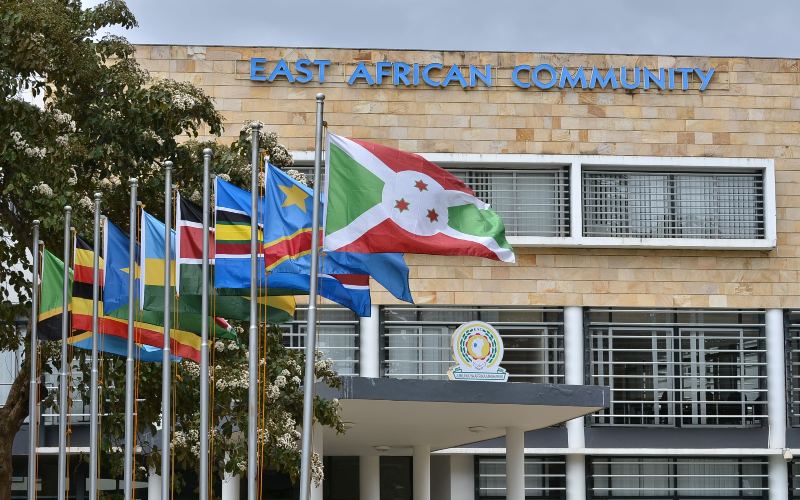Pastoralist women beading their way out of poverty and marginalisation
![Pastoralist women beading their way out of poverty and marginalisation - Pastoralist women display some of the items they make in their beading venture. [Photo: Waweru Wairimu]](https://publish.eastleighvoice.co.ke/mugera_lock/uploads/2024/08/IMG_20240824_101229_893-1.jpg)
Group runs a curio shop in Loiyangalani town where they display their merchandise and from where the members work
With communities in arid and semi-arid lands (Asals) increasingly under threat due to climate change, the need for diversification of sources of livelihood is no longer optional.
Pastoralism, which is the main economic stay in more than 20 Asal counties, has over the years proven unreliable due to persistent drought which results in massive loss of livestock, exposing the communities to acute hunger and malnutrition.
More To Read
- Red Cross launches Sh2.4 billion emergency appeal to combat escalating climate crisis
- Marsabit households get 100 camels in government push to restore livelihoods
- Livestock project targets Garissa youth with skills, finance and market opportunities
- From Kariokor Market stall to global artistry: Nairobi beader Elizabeth Kioko’s inspiring journey
- Alarm as invasive Mathenge plant overruns 1.1 million hectares, threatening livelihoods in 22 counties
- Africans survived 10,000 years of climate change by adapting food systems – Study offers lessons for modern times
Women, children and the elderly, who are mostly left behind when men leave with animals, in search of water and pasture when drought strikes, bear the biggest brunt of climate change.
Apart from their usual domestic chores, women, due to limited access to economic opportunities, face the insurmountable task of fending for their families while their husbands are away.
In a bid to address the challenges and reduce overreliance on livestock keeping, pastoralist women are now considering alternative sources of income to beat poverty and food insecurity.
A case in point is the Ong'on group of 15 women from El Molo, Samburu, Rendille and Turkana communities living along the shores of Lake Turkana in Loiyangalani, Marsabit County who are leveraging on their traditional and acquired skills in beadwork to earn a living.
The women aged between 33-50 years say besides earning them income, the venture has contributed to the promotion of their rich culture.
Nairisio Lorish, a member of the group and mother of three, said though they lack a reliable market for their products, they are earning enough to support their families and save.
The group mostly targets tourists visiting the region for a taste of its amazing landscape.
"Hunger is now a thing of the past in our families and our children are hardly sent home over fee arrears," she said.
 A woma displays a finished beadwork product.
A woma displays a finished beadwork product.
The majority of the members have never set foot in a classroom but are committed to ending the discrimination of girls in getting an education by ensuring their daughters transit to the highest level and are not married off to older men.
Due to patriarchal norms, the education of girls is disregarded due to the notion that after they are married, they leave their parents' homes and might not assist them in future.
Following devastation by drought, parents marry off their daughters to get cows offered as bride price as they seek to replenish their lost stock and beat hunger.
What started as a part-time engagement has over the years grown into a full-time venture, offering the members a lifeline.
The group runs a curio shop within Loiyangalani town where they display their merchandise and from where the members work.
"Men have over time appreciated the work that we do because they can see the income we earn from it and how crucial it is in promoting the welfare of our families," Nairisio said.
Among the intricately beaded ornaments they produce are bracelets, anklets and necklaces with the items costing between Sh200 and Sh5,000 depending on the uniqueness of design, beads and size.
Half of the income from the business is deposited into the group's joint account while the rest is shared amongst the members. Members also access loans from their savings to take care of emergencies.
The group’s director Teresal Basintian told The Eastleigh Voice that they make between Sh20,000 and Sh50,000 monthly.
She revealed that the women commercialised the venture after receiving training on quality beadwork production and financial support from the World Food Programme.
"Hailing from a county where poverty levels remain high, access to economic opportunities remains key in empowering women who continue to suffer discrimination," she said.
She said in addition to contributing to the welfare of their families, the beadwork business also offers them economic freedom.
"We no longer beg for everything from our husbands like we did before. This has contributed a lot in our journey to financial independence," Teresal said during the recent Rendille Food and Cultural Festival in Loglogo, Marsabit which was organised by the Pastoralist People's Initiative.
The group has also been running campaigns against gender-based violence against women and championing adequate land rights for pastoralist women.
Moleen Otieno, who works with the Loiyangalani Gender Watch which promotes women's rights and fights gender-based violence, said domestic violence cases have reduced in the last few years as women are also contributing to providing for their families.
"The irritation that men got for being asked for everything is no longer there because the women now have a source of income and are helping take care of household expenses," she said.
The women's group previously benefited from the organisation's training on financial literacy, saving as well as mentorship programmes.
However, the entrepreneurs lamented over an unreliable market and the high cost of beads that they source in Nairobi, more than 600 kilometres from the village, and appealed to the county government to link them to local and national markets.
"A reliable market will encourage us to produce more and help us earn extra income," Nairisio said.
Digitisation of marketing of bead products has been cited as among the best ways to address the continued exploitation of Kenyan traders by middlemen.
Top Stories Today


















































